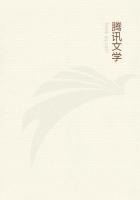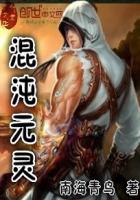While the current theory thus appears to break down over the deities of certain Australian tribes and of other low savages to be more particularly described later, it is not more successful in dealing with what we have called the "fault" or break in the religious strata of higher races. The nature of that "fault" may thus be described: While the deities of several low savage peoples are religiously regarded as guardians and judges of conduct both in this life and in the next, among higher barbarians they are often little, or not at all, interested in conduct. Again, while among Australians, and Andamanese, and Fuegians, there is hardly a verifiable trace, if any trace there be, of sacrifice to any divine being, among barbarians the gods beneath the very highest are in receipt even of human sacrifice. Even among barbarians the highest deity is very rarely worshipped with sacrifice. Through various degrees he is found to lose all claim on worship, and even to become a mere name, and finally a jest and a mockery. Meanwhile ancestral ghosts, and gods framed on the same lines as ghosts, receive sacrifice of food and of human victims. Once more, the high gods of low savages are not localised, not confined to any temple or region. But the gods of higher barbarians (the gods beneath the highest), are localised in this way, as occasionally even the highest god also is.
All this shows that, among advancing barbarians, the gods, if they started from the estate of gods among savages on the lowest level, become demoralised, limited, conditioned, relegated to an otiose condition, and finally deposed, till progressive civilisation, as in Greece, reinstates or invents purer and more philosophic conceptions, without being able to abolish popular and priestly myth and ritual.
Here, then, is a flaw or break in the strata of religion. What was the cause of this flaw? We answer, the evolution, through ghosts, of "animistic" gods who retained the hunger and selfishness of these ancestral spirits whom the lowest savages are not known to worship.
The moral divine beings of these lowest races, beings (when religiously regarded) unconditioned, in need of no gift that man can give, are not to be won by offerings of food and blood. Of such offerings ghosts, and gods modelled on ghosts, are notoriously in need. Strengthened and propitiated by blood and sacrifice (not offered to the gods of low savages), the animistic deities will become partisans of their adorers, and will either pay no regard to the morals of their worshippers, or will be easily bribed to forgive sins. Here then is, ethically speaking, a flaw in the strata of religion, a flaw found in the creeds of ghost-worshipping barbarians, but not of non-ghost-worshipping savages. A crowd of venal, easy-going, serviceable deities has now been evolved out of ghosts, and Animism is on its way to supplant or overlay a rude early form of theism. Granting the facts, we fail to see how they are explained by the current theory which makes the highest god the latest in evolution from a ghost. That theory wrecks itself again on the circumstance that, whereas the tribal or national highest divine being, as latest in evolution, ought to be the most potent, he is, in fact, among barbaric races, usually the most disregarded.
A new idea, of course, is not necessarily a powerful or fashionable idea. It may be regarded as a "fad," or a heresy, or a low form of dissent. But, when universally known to and accepted by a tribe or people, then it must be deemed likely to possess great influence.
But that is not the case; and among barbaric tribes the most advanced conception of deity is the least regarded, the most obsolete.
An excellent instance of the difference between the theory here advocated, and that generally held by anthropologists, may be found in Mr. Abercromby's valuable work, Pre- and Proto-Historic Finns, i. 150-154. The gods, and other early ideas, says Mr. Abercromby, "could in no sense be considered as supernatural". We shall give examples of gods among the races "nearest the beginning," whose attributes of power and knowledge can not, by us at least, be considered other than "supernatural". "The gods" (in this hypothesis) "were so human that they could be forced to act in accordance with the wishes of their worshippers, and could likewise be punished." These ideas, to an Australian black, or an Andamanese, would seem dangerously blasphemous. These older gods "resided chiefly in trees, wells, rivers and animals". But many gods of our lowest known savages live "beyond the sky". Mr.
Abercromby supposes the sky god to be of later evolution, and to be worshipped after man had exhausted "the helpers that seemed nearest at hand . . . in the trees and waters at his very door". Now the Australian black has not a door, nor has he gods of any service to him in the "trees and waters," though sprites may lurk in such places for mischief. But in Mr. Abercromby's view, some men turned at last to the sky-god, "who in time would gain a large circle of worshippers". He would come to be thought omnipotent, omniscient, the Creator. This notion, says Mr. Abercromby, "must, if this view is correct, be of late origin". But the view is not correct. The far-seeing powerful Maker beyond the sky is found among the very backward races who have not developed helpers nearer man, dwelling round what would be his door, if door he was civilised enough to possess. Such near neighbouring gods, of human needs, capable of being bullied, or propitiated by sacrifice, are found in races higher than the lowest, who, for their easily procurable aid, have allowed the Maker to sink into an otiose god, or a mere name. Mr.
Abercromby unconsciously proves our case by quoting the example of a Samoyede. This man knew a Sky-god, Num; that conception was familiar to him. He also knew a familiar spirit. On Mr.















